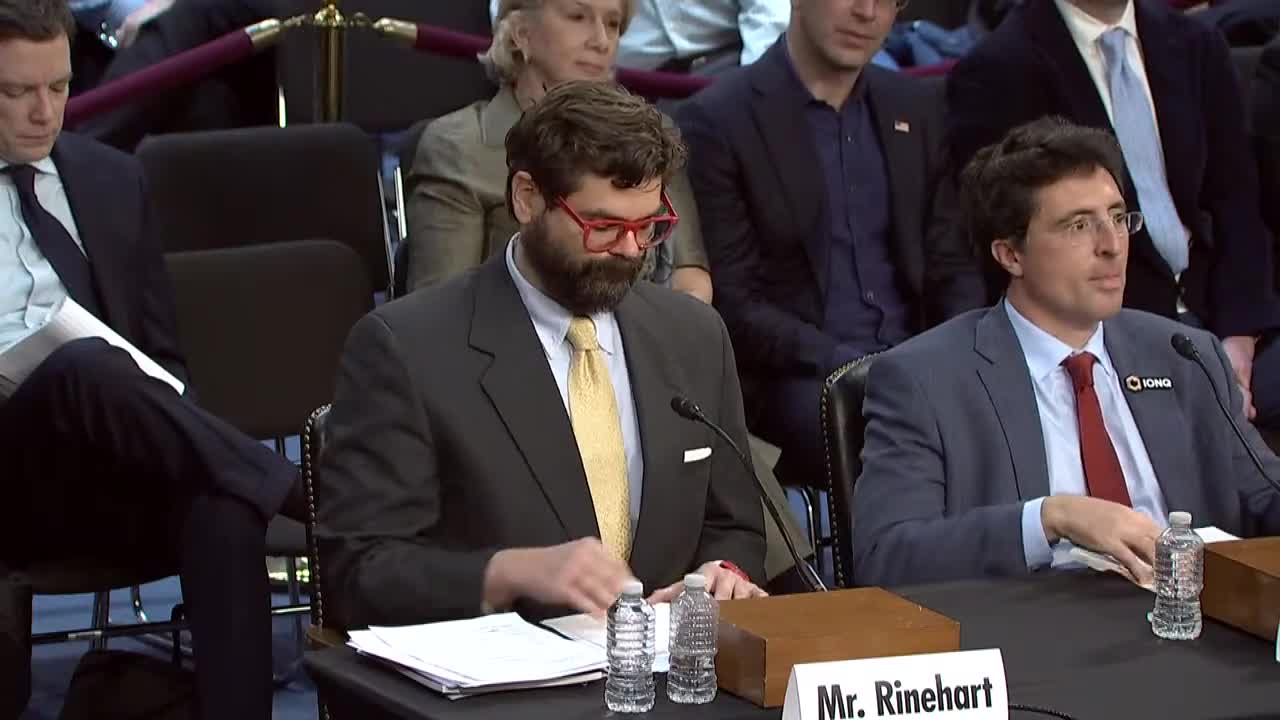IonQ CEO tells JEC quantum computing is commercial, energy‑efficient and central to competitiveness
Get AI-powered insights, summaries, and transcripts
Subscribe
Summary
IonQ's CEO told the Joint Economic Committee that quantum computing is already commercializing across industries, can accelerate drug design and other scientific work, and should be a U.S. investment priority to maintain advantage over China.
Nicolas DiMassi, chief executive officer of IonQ, told the Joint Economic Committee that quantum computing has moved beyond the laboratory and is becoming a commercial engine with significant national‑security implications.
DiMassi described IonQ as a large public quantum firm and said the company has partnered with AstraZeneca, Amazon Web Services and NVIDIA to accelerate computational drug design; he said a recent partnership achieved a 20‑times speedup that turned "nearly a month of classical computational work into just a day and a half." He presented quantum as complementary to classical AI systems and highlighted quantum networking and sensing applications that, he said, could yield advances in positioning and secure communications.
On competitiveness, DiMassi framed quantum as strategic: "Governments around the world are investing tens of billions of dollars in national quantum strategies," he said, urging U.S. investment to stay ahead of China and other global players. He also described substantial private investment in IonQ and said the company had spent billions building its platform.
Technical claims included assertions about energy efficiency and fidelity: DiMassi said IonQ machines use much less energy than classical supercomputers and reported "four nines" of qubit fidelity (99.99 percent), which he said reduces error‑correction burdens. He also highlighted partnerships with Oak Ridge National Laboratory and Electric Power Board of Tennessee as examples of regional ecosystems supporting quantum development.
Members pressed on timelines and application readiness. DiMassi said hybrid classical–quantum workflows are already shortening problem timelines in chemistry and drug discovery, and he described a multi‑decade trajectory of application growth that will create new industries and job categories. The committee did not vote on legislation; members asked for post‑hearing written responses and further technical clarifications.
